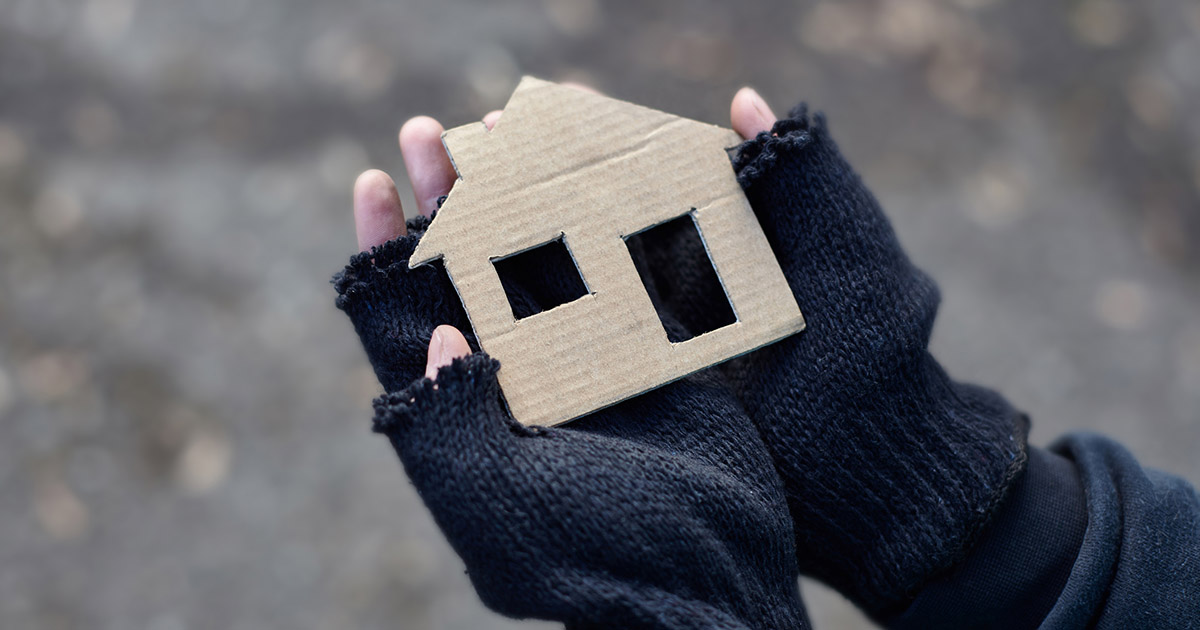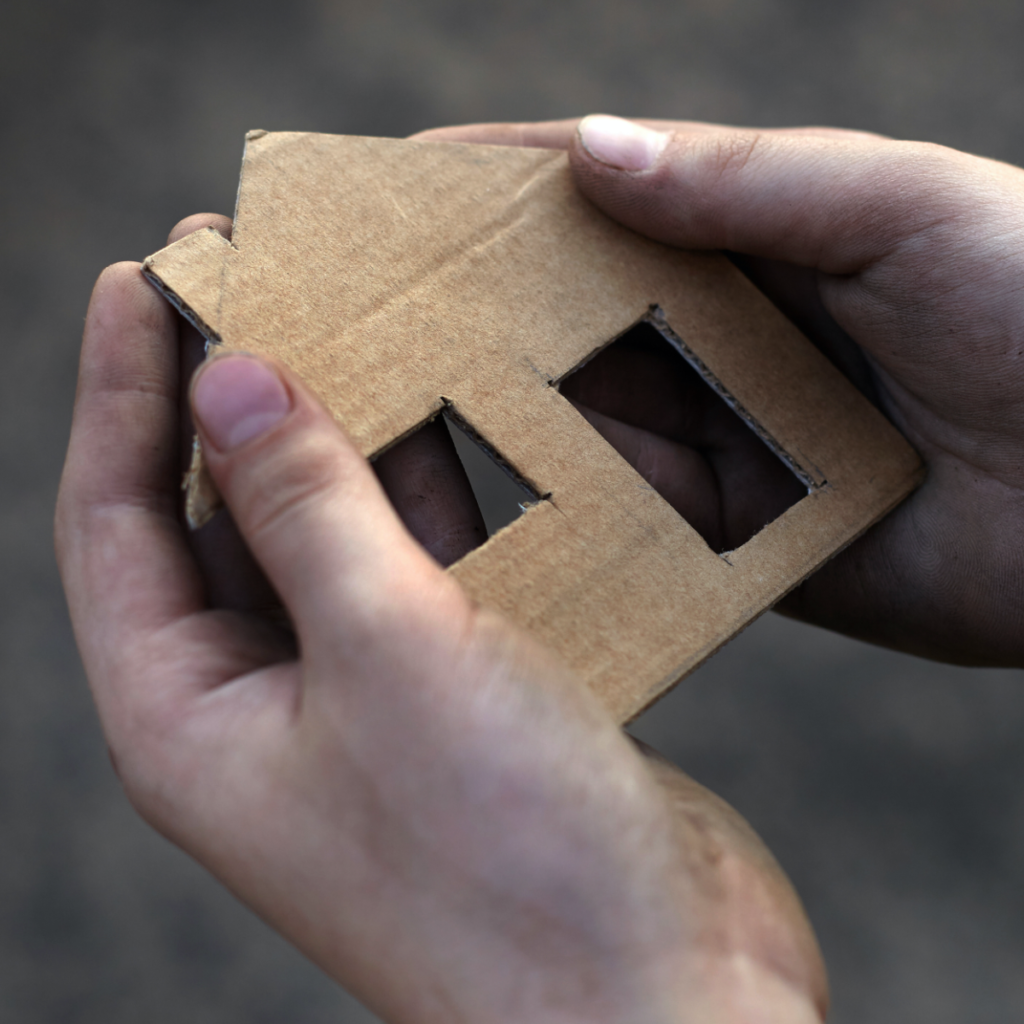Walk down the streets of any major U.S. city, and you’re likely to see many people who appear to be homeless. They may be sleeping in the doorways of businesses or in public parks. From the outside, it may appear that the only problem is a lack of housing. However, the problem is much more complex.
In fact, several contributing factors can lead to homelessness. It would be nice if one solution could solve all the issues, but the truth is, homelessness requires a multi-faceted approach that includes both short- and long-term solutions. With a stronger understanding of the root causes of homelessness, we can better address the problem to help those affected, restore our communities, and improve the quality of life for all Americans.
The Causes of Homelessness Are Complex
Everyone has their own opinion on the leading cause of homelessness, but there is no one correct answer. Some people believe that a lack of affordable housing is the root cause, while others think the issue is more social. The fact is, homelessness can be caused by a variety of factors, including:
- The most common reason for homelessness is a lack of affordable housing. When people cannot afford to pay their rent or mortgage, their options for shelter are dramatically limited, especially if they are unemployed. It’s no secret that the cost of housing has been on the rise for years, and this is especially true in major cities. There is a limited supply of affordable housing in these cities, and homeless people are not the only ones who compete for it. Even families with some income can find themselves struggling to afford a place to live.
- Poverty is also a significant contributor to homelessness. People living in poverty are often unable to make ends meet, especially when faced with additional expenses such as illness or job loss. In many cases, people living in poverty find themselves in a downward spiral, unable to afford basic necessities like food and shelter.
- Mental illness is another major cause of homelessness. Depression, anxiety, and schizophrenia are just a few conditions that can lead to homelessness. People with mental illness often have difficulty holding down a job or accessing necessary services. As a result, they may find themselves on the streets without any support system.
- Substance abuse is another common cause of homelessness. When people are addicted to drugs and alcohol, they may find themselves unable to hold down a job or maintain stable living arrangements. They may also have trouble accessing resources and services, making getting back on their feet even more difficult.
- Domestic abuse is another major cause of homelessness. Victims of domestic abuse often find themselves fleeing from their homes with nowhere to go, no money in the bank, and few resources. They may be fearful for their safety and the safety of their children, making it difficult to stay in one place for very long.
What Is Being Done to Address the Problem?

The causes of homelessness are complex, so there is no single solution. However, a number of programs and initiatives are working to address the problem. Some of these include:
- Housing assistance programs. Several government and private programs provide housing assistance to low-income families and individuals. These housing programs can help people afford a place to live, even when their income is low.
- Mental health services. Many mental health services are available to people who need them. These services can help people with mental illness access the resources they need to maintain daily life.
- Substance abuse treatment. Several substance abuse treatment programs are available for people struggling with addiction. These programs can help people get clean, stay sober, and reclaim their lives.
- Domestic violence shelters. There are a number of domestic violence shelters available for victims of abuse. These shelters provide a safe place to stay, as well as access to resources and services.
What Comes First: Homelessness or Substance Abuse?
Similar to the age-old question of the chicken and the egg, there is often an ongoing debate of what comes first: homelessness or substance abuse? While there are several factors that can lead to both homelessness and addiction, there is no definitive answer to this question.
Homelessness and substance abuse often go hand in hand. In fact, many people who are homeless struggle with addiction, and many people who are addicted to drugs and alcohol are homeless. However, it is possible for someone to be homeless without being addicted, and it is possible for someone to be addicted without being homeless.
How Can Homelessness Lead to Substance Abuse?
While not everyone who is homeless struggles with addiction, there are a number of factors that can lead the homeless to substance abuse.
These include:
Stress
Stress is a major factor that can lead to both homelessness and substance abuse. People who are homeless often experience high levels of stress due to the lack of resources, safety concerns, and other factors. This stress can lead them to self-medicate with drugs and alcohol in an attempt to cope.
Lack of support
People who are homeless often lack the social and emotional support they need to get through tough times. This can lead them to turn to drugs and alcohol for comfort.
Trauma
People who have experienced trauma are also more likely to struggle with addiction. This is especially true for people who are homeless, as they may be more likely to experience trauma due to the lack of safety.
How Can Substance Abuse Lead to Homelessness?
Similar to the factors that can lead to homelessness, there are a number of factors that can lead to addiction. These include:
Mental illness
People with mental illness are more likely to struggle with addiction. This is especially true for people who don’t have access to mental health services. When a mental health issue goes untreated and unsupported, it can lead an individual to reach for drugs or alcohol as a way to cope. As time goes on, the use of substances can spiral out of control and result in addiction. And when someone is struggling with addiction, it can become difficult to maintain stable employment and housing, which ultimately leads to homelessness.
Financial Instability
Financial instability is another common factor that leads to addiction. When people are struggling to make ends meet, they may turn to drugs or alcohol as a way to escape their problems. As addiction takes hold, it can become increasingly difficult to keep up with bills and other financial obligations, which can lead to homelessness.
Family History
This is a big one. While not everyone who grows up in an unstable, dysfunctional family will struggle with addiction, it is a major risk factor. If there is a history of addiction in your family, you are more likely to struggle with addiction yourself. This is due to the fact that you may be more likely to develop unhealthy coping mechanisms and be predisposed to addictive behaviors.
Difficult Life Events
People who experience a traumatic event, such as the death of a loved one or losing their job, are more likely to struggle with addiction. This is because these events can be incredibly overwhelming and lead to feelings of sadness, loneliness, and despair. When people don’t have healthy coping mechanisms to deal with these feelings, they may turn to drugs or alcohol as a way to cope and eventually transition from addiction to homelessness.
There are a number of factors that can lead to both homelessness and addiction, and these problems often feed into each other. It is important to be aware of these risk factors and seek help if you or someone you know is struggling with either homelessness or addiction.
Strategies to Address Homelessness and Substance Abuse
Several strategies can be used to address homelessness and substance abuse. Some of these include:
Providing Access to Mental Health Services
One of the biggest factors that can lead to both homelessness and addiction is a lack of access to mental health services. By providing access to these resources, we can help prevent homelessness and addiction before they start.
Providing Support
People who are struggling with homelessness or addiction often lack the support system they need to get through these trying times. By providing access to resources, such as 12-step programs, we can help people who are struggling to cope and provide them with the support they need.
Incorporating Holistic Treatment
Holistic treatment approaches, such as yoga and meditation, can be incredibly helpful for people who are struggling with addiction and homelessness. These approaches help to address the whole person, not just the addiction. These are just a few of the strategies that can be used to address homelessness and substance abuse. If you or someone you know is struggling with these issues, incorporating one or more of these strategies may be a good option. Remember, it is never too late to get help.
Sober Housing for the Homeless in Recovery

We would love to help more individuals through our ECHO Housing Initiative – however, the need is great and the funding is low. With more donations we can help recovering individuals, who do not have the means to support themselves while in the initial stages of treatment, take the first step back towards becoming productive members of society by providing financial assistance towards safe and supportive sober living housing, personal needs and art for recovery programs while in recovery.
ECHO Recovery is a non-profit organization helping individuals in recovery. We’ve found that many individuals in early recovery do not have a safe place to live.
Please consider donating to help fund this sober housing campaign. Every dollar counts. Even if we can help one person together, it’s worth it, right?
If you or someone you know is struggling with homelessness or dependency, visit our free recovery and treatment resource page for a list of helpful free and low cost services. If you’re in Maryland we also have a list of local recovery resources for those in Harford County.
Resources:
- Deden Rukmana (2020) The Causes of Homelessness and the Characteristics Associated With High Risk of Homelessness: A Review of Intercity and Intracity Homelessness Data, Housing Policy Debate, 30:2, 291-308, DOI: 10.1080/10511482.2019.1684334
- Davis, J. P., Diguiseppi, G., De Leon, J., Prindle, J., Sedano, A., Rivera, D., Henwood, B., & Rice, E. (2019). Understanding pathways between PTSD, homelessness, and substance use among adolescents. Psychology of Addictive Behaviors, 33(5), 467–476. https://doi.org/10.1037/adb0000488
- Lombardi, K., Pines, J. M., Mazer-Amirshahi, M., &Pourmand, A. (2020). Findings of a national dataset analysis on the visits of homeless patients to US emergency departments during 2005-2015. Public Health, 178, 82-89.
- Fowler, P. J., Hovmand, P. S., Marcal, K. E., & Das, S. (2019). Solving Homelessness from a Complex Systems Perspective: Insights for Prevention Responses. Annual review of public health, 40, 465–486. https://doi.org/10.1146/annurev-publhealth-040617-013553
- Gannotta, R., Malik, S., Chan, A. Y., Urgun, K., Hsu, F., & Vadera, S. (2018). Integrative Medicine as a Vital Component of Patient Care. Cureus, 10(8), e3098. https://doi.org/10.7759/cureus.3098
- Perri, M., Dosani, N., & Hwang, S. W. (2020). COVID-19 and people experiencing homelessness: challenges and mitigation strategies. CMAJ : Canadian Medical Association journal = journal de l’Association medicale canadienne, 192(26), E716–E719. https://doi.org/10.1503/cmaj.200834
- Benavides, A. D., & Nukpezah, J. A. (2020). How Local Governments Are Caring for the Homeless During the COVID-19 Pandemic. The American Review of Public Administration, 50(6–7), 650–657. https://doi.org/10.1177/0275074020942062

Experienced Chief Executive Addiction Recovery and Mental Health Professional
Business professional in the Addiction Recovery and Mental Health industry for the past 26 years. Caring, compassionate and strongly motivated to make a difference in the organizations I am affiliated with and welfare of the population we serve. Currently focused on advocating, educating and developing projects leveraging evidence based, real time technology to support individuals in recovery.







